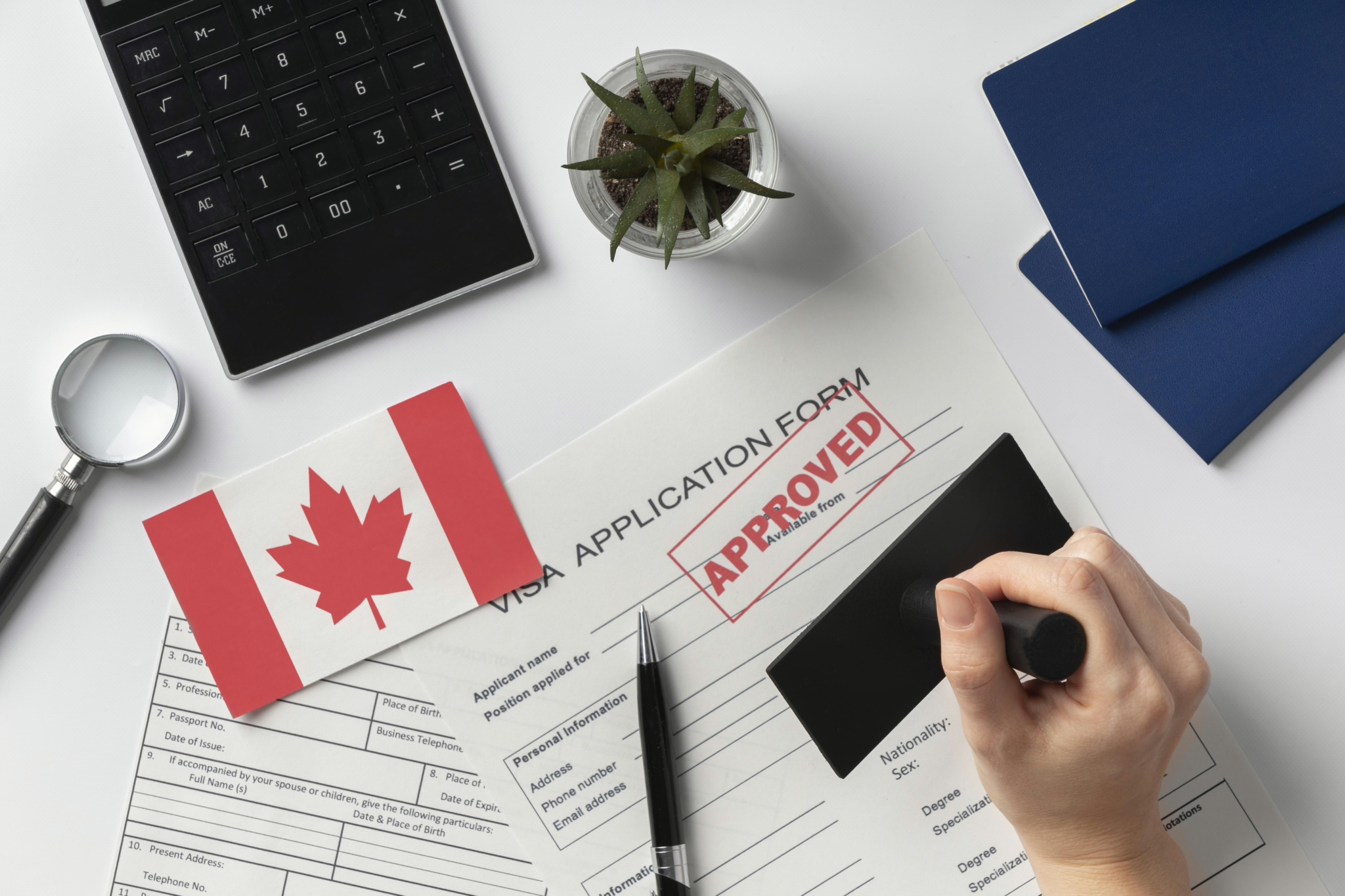Table of contents
- Understanding the Legal Landscape of Canadian Immigration
- The Legal Aspects of Applying for Permanent Residency
- Finding Reliable Legal Advice: Where and How
- Common Pitfalls and How to Avoid Them
- Your Legal Checklist for Permanent Residency Application
- Keep Going, Your Canadian Dream is Within Reach! 🍁
- Frequently Asked Questions
- What are the legal consequences of a rejected application?
- Can I reapply if my application for permanent residency is rejected?
- How can I verify the legitimacy of a legal firm or advisor?
- What are some red flags to watch out for when seeking legal advice?
- What legal protections do I have as an applicant?
- Sources
Embarking on the journey to become a permanent resident in Canada can feel like navigating a labyrinth. The legal landscape of Canadian immigration is complex, filled with twists, turns, and potential pitfalls. But fear not; this guide is here to help you understand the legal aspects of applying for permanent residency, find reliable sources of legal advice, and learn about common pitfalls and how to avoid them. Whether you are just starting your journey or you are deep in the maze of legal requirements, this guide is designed to help you reach your goal: becoming a permanent resident of Canada.
Understanding the Legal Landscape of Canadian Immigration
Canadian immigration law is a complex system that governs who can enter the country, how long they can stay, and what they can do while they are here. It is a constantly evolving system, with changes often driven by shifts in government policy, societal needs, and global events. Understanding this legal landscape is crucial for anyone seeking to become a permanent resident of Canada.
Key Legal Terms and Concepts Explained
The first step in understanding Canadian immigration law is to familiarize yourself with the key legal terms and concepts. These include terms like “permanent resident,” “citizen,” “refugee,” and “asylum seeker,” each of which has a specific legal definition and implications for an individual’s rights and responsibilities in Canada.
For example, a permanent resident is someone who has been given permanent resident status by immigrating to Canada, but is not a Canadian citizen. Permanent residents are citizens of other countries. They have certain rights and responsibilities, such as the right to most social benefits Canadian citizens receive, including health care coverage, and the responsibility to obey Canadian law.
Understanding these terms and concepts is like having a map of the legal labyrinth of Canadian immigration. While it will not necessarily make the journey easy, it will help you know where you are going and what to expect along the way.
The Legal Aspects of Applying for Permanent Residency

Applying for permanent residency in Canada involves several legal steps, each with its requirements and potential challenges. The process begins with determining your eligibility. Canada has several immigration programs, each with its own set of criteria. These may include factors like age, education, work experience, language skills, and family ties in Canada.
Once you have determined your eligibility, the next step is to prepare and submit your application. Preparing and submitting an application involves gathering various documents, such as proof of identity, proof of education, and police certificates. It is crucial to ensure that all documents are accurate and up-to-date, as any errors or omissions can lead to delays or even the rejection of your application.
After submitting your application, it will be reviewed by Immigration, Refugees and Citizenship Canada (IRCC). This review process can take several months, and it is important to be patient and responsive to requests for additional information.
Finally, if your application is approved, you will be granted permanent resident status. However, the journey does not end there. As a permanent resident, you will have certain rights and responsibilities, and it is important to understand these to maintain your status and make the most of your new life in Canada.
Navigating the legal aspects of applying for permanent residency can be challenging, but with the right knowledge and resources, you can successfully navigate this process and achieve your goal of becoming a permanent resident of Canada.
Eligibility Criteria
The eligibility criteria for becoming a permanent resident in Canada vary depending on the immigration program you’re applying through. The most common programs include, but are not limited to, the Federal Skilled Worker Program, the Canadian Experience Class, and the Family Sponsorship Program.
Each of these programs has its own set of criteria. For example, the Federal Skilled Worker Program requires applicants to have at least one year of continuous full-time or equivalent paid work experience in a single occupation within the last ten (10) years, among other criteria. The Canadian Experience Class, on the other hand, is for skilled workers with Canadian work experience who want to become permanent residents.
It’s important to carefully review the criteria for the program you are interested in to ensure you are eligible before you begin the application process. If you are unsure about your eligibility, it may be beneficial to seek legal advice.
The Application Process
The application process for permanent residency in Canada involves several legal steps. First, you will need to gather all the necessary documents. These may include proof of identity, proof of education, police certificates, and more. It is crucial to ensure all documents are accurate and up-to-date, as any errors or omissions can lead to delays or even rejection of your application.
Once you have gathered all the necessary documents, you will need to complete the application form for the immigration program you are applying through. This form will ask for detailed information about your background, education, work experience, and more. It’s important to answer all questions honestly and completely, as false or misleading information can lead to serious consequences, including being barred from applying for permanent residency for five (5) years.
After completing your application, you must pay the application fee and submit your application. The fee varies depending on the immigration program, but generally ranges from a few hundred to a few thousand Canadian dollars. Once your application is submitted, it will be reviewed by Immigration, Refugees and Citizenship Canada (the “IRCC”). This review process can take several months, and it is important to be patient and responsive to requests for additional information.
Finally, you will be granted permanent resident status if your application is approved. However, the journey does not end there. As a permanent resident, you will have certain rights and responsibilities, and it is important to understand these to maintain your status and make the most of your new life in Canada.
Finding Reliable Legal Advice: Where and How
Securing reliable legal advice is a crucial step in your journey to becoming a permanent resident in Canada. Legal professionals can provide invaluable guidance, helping you navigate the complex landscape of Canadian immigration law, understand your rights and responsibilities, and avoid common pitfalls.
Many legal resources and legal advice service providers are available, from private law firms to government and non-profit organizations. The key is to find a source that is trustworthy, experienced, and understands your unique situation.
Top Legal Firms for Immigration in Canada
Many law firms in Canada specialize in immigration law. These firms are staffed by experienced lawyers who understand the intricacies of the immigration process and can provide expert guidance.

Choose a top immigration firm, such as Pax Law, with a track record of successfully helping clients navigate the immigration process and achieve their goal of becoming permanent residents.
When choosing a legal firm, it is important to consider factors such as the firm’s reputation, the experience and qualifications of its lawyers, and the services it offers. It may also be beneficial to schedule a consultation to discuss your situation and understand whether the firm is a good fit for you.
Government and Non-Profit Organizations Offering Legal Advice
In addition to private law firms, many government and non-profit organizations offer legal advice for immigration matters. These organizations often provide services at a lower cost or even for free, making them a great option for those on a budget.
For example, the Government of Canada provides a wealth of information on its website, including guides on the immigration process, eligibility criteria, and legal rights and responsibilities. There are also many non-profit organizations, such as the Canadian Council for Refugees and Legal Aid BC, that offer legal advice and support for immigrants and refugees.
When seeking advice from these organizations, it is important to ensure they are reputable and reliable. Look for organizations that have a track record of successfully helping immigrants and refugees, and that provide clear, accurate, and up-to-date information.
Online Resources for Legal Guidance
The internet is a vast resource for legal information and advice. There are many websites, forums, and social media groups where you can find information on Canadian immigration law, ask questions, and connect with others who are going through the same process.
Some reputable online resources include the Government of Canada’s immigration website, and the Canadian Bar Association’s Immigration Law Section.
While online resources can be incredibly helpful, it is important to approach them with a critical eye. Not all information you find online will be accurate or up-to-date. Always cross-reference information with other sources, and consider seeking professional legal advice for complex issues or questions.
Common Pitfalls and How to Avoid Them
Even with the best preparation and advice, the journey to becoming a permanent resident in Canada can be fraught with potential pitfalls. These can range from simple mistakes on your application to more complex legal issues. However, by being aware of these common pitfalls and knowing how to avoid them, you can greatly increase your chances of success.
Legal Mistakes Often Made in Applications
One of the most common pitfalls in the application process is making mistakes on your application. These can range from small errors, like misspelling a name or entering a wrong date, to larger issues, like failing to disclose important information or providing false information.
These mistakes can lead to delays in processing your application, or even outright rejection. To avoid these issues, it’s crucial to carefully review your application before submitting it. Ensure all information is accurate and complete, and don’t hesitate to seek legal advice if you’re unsure about anything.
Another common pitfall is failing to stay up-to-date with changes in immigration law. The legal landscape of Canadian immigration is constantly evolving, and changes can affect your eligibility or the requirements for your application. To avoid this pitfall, regularly check the Government of Canada’s immigration website for updates, and consider subscribing to newsletters or alerts from reputable immigration law firms or organizations.
How to Prevent Legal Issues from Derailing Your Application
Legal issues can arise at any stage of the application process and quickly derail your journey to becoming a permanent resident. These issues can range from problems with your documents, like missing or incorrect information, to more complex issues, like a criminal record or previous immigration violations.
To prevent these issues from derailing your application, being proactive is crucial. Make sure all your documents are accurate and up-to-date, and disclose any potential issues upfront. If you have a criminal record or previous immigration violations, it is especially important to seek legal advice. A legal professional can help you understand how these issues might affect your application and what steps you can take to address them.
Another key strategy is to stay organized. Keep track of all your documents, correspondence with immigration officials, and any changes in your situation. Remaining organized through the application process can help you quickly respond to requests for additional information or address any issues that arise.
Key Takeaways:
- Legal issues can arise at any stage of the application process and can derail your journey to becoming a permanent resident.
- Be proactive, make sure all your documents are accurate and up-to-date, and disclose any potential issues upfront.
- Stay organized and keep track of all your documents and correspondence.
Your Legal Checklist for Permanent Residency Application
As you embark on your journey to becoming a permanent resident of Canada, it is important to understand the legal aspects involved clearly. This section provides a checklist of key legal considerations to help guide you through the process.
Essential Legal Documents and Their Importance
When applying for permanent residency in Canada, you’ll need to provide a number of legal documents. These documents verify your identity, background, and eligibility for immigration. They may include:
- Passport or travel document
- Birth certificate
- Marriage certificate (if applicable)
- Police certificates
- Proof of work experience
- Proof of language proficiency
- Medical examination results
Each of these documents plays a crucial role in your application. For example, your passport or travel document verifies your identity and nationality, while your police certificates provide evidence of your good character. It is important to ensure that these documents are accurate, up-to-date, and translated into English or French if necessary.
Legal Aspects to Double-Check Before Submission
Before submitting your application for permanent residency, it is crucial to double-check all legal aspects. Double-checking ensures that all your documents are in order, but also reviewing your application for any potential legal issues.
Here are some key legal aspects to double-check:
- Accuracy of information: Ensure all the information in your application is accurate and complete. Any errors or omissions could lead to delays or even rejection of your application.
- Full disclosure: Be sure to disclose all relevant information, even if it seems minor. Failing to disclose information could be seen as misrepresentation, which can have serious consequences.
- Up-to-date knowledge: Ensure your application reflects current immigration laws and regulations. The legal landscape of Canadian immigration is constantly evolving, and outdated information could harm your application.
Double-checking these legal aspects can increase your chances of a smooth and successful application process.
Keep Going, Your Canadian Dream is Within Reach! 🍁
The journey to becoming a permanent resident in Canada can be challenging, but your Canadian dream is within reach with the right knowledge and resources. This final section will provide a recap of the key points covered in this guide and outline the next steps in your legal journey.
Recap: Your Legal Guide to Permanent Residency
Throughout this guide, we have covered various topics to help you navigate the legal aspects of applying for permanent residency in Canada. We have explored the legal landscape of Canadian immigration, the legal aspects of the application process, how to find reliable legal advice, common pitfalls and how to avoid them, and the importance of learning from others’ experiences.
We have also provided a legal checklist for your application, including the essential documents you will need and key legal aspects to double-check before submission.
Remember, while the process can be complex, you are not alone. Many resources are available to help you, from reputable law firms and government and non-profit organizations to online forums and guides like this one.
Frequently Asked Questions
What are the legal consequences of a rejected application?
If your application for permanent residency is rejected, the legal consequences can vary depending on the reason for rejection. In some cases, you may simply be able to reapply. In other cases, such as if your application was rejected due to misrepresentation, you may be barred from reapplying for a certain period. It is important to understand the reasons for rejection and to seek legal advice if necessary.
Can I reapply if my application for permanent residency is rejected?
Yes, in most cases, you can reapply if your application for permanent residency is rejected. However, it’s important to understand the reason for the rejection and to address any issues before reapplying. If your application was denied due to misrepresentation, you may be barred from reapplying for a certain period.
How can I verify the legitimacy of a legal firm or advisor?
Verifying the legitimacy of a legal firm or advisor is crucial. You can check if the firm or advisor is registered with a recognized legal body, such as the Immigration Consultants of Canada Regulatory Council. You can also look for reviews or testimonials from previous clients.
What are some red flags to watch out for when seeking legal advice?
Some red flags to watch out for include advisors who guarantee success, those who refuse to provide a written contract, those who do not provide clear information about fees, and those who advise you to lie or provide false information on your application. Always ensure that your advisor is registered with a recognized legal body.
What legal protections do I have as an applicant?
As an applicant, you have certain legal protections under Canadian law. These include the right to fair treatment, the right to privacy, and the right to appeal a decision on your application in certain cases. If you feel your rights have been violated, seek legal advice is important.
Sources
- “Get a Permanent Resident Card – Canada.ca.” Canada.ca, 2023, www.canada.ca/en/immigration-refugees-citizenship/services/new-immigrants/pr-card.html. Accessed 30 June 2023.
- “Immigration and Citizenship – Canada.ca.” Canada.ca, 2023, www.canada.ca/en/services/immigration-citizenship.html. Accessed 30 June 2023.
- “Eligibility to Apply as a Federal Skilled Worker (Express Entry) – Canada.ca.” Canada.ca, 2023, www.canada.ca/en/immigration-refugees-citizenship/services/immigrate-canada/express-entry/eligibility/federal-skilled-workers.html. Accessed 30 June 2023.
- “Eligibility to Apply for the Canadian Experience Class (Express Entry) – Canada.ca.” Canada.ca, 2023, www.canada.ca/en/immigration-refugees-citizenship/services/immigrate-canada/express-entry/eligibility/canadian-experience-class.html. Accessed 30 June 2023.
- “Sponsor Your Family Members to Immigrate to Canada – Canada.ca.” Canada.ca, 2019, www.canada.ca/en/immigration-refugees-citizenship/services/immigrate-canada/family-sponsorship.html. Accessed 30 June 2023.
- “Home | Canadian Council for Refugees.” Ccrweb.ca, 20 June 2023, ccrweb.ca/en. Accessed 30 June 2023.
- “Legal Aid BC – Free Legal Help for BC Residents.” Legalaid.bc.ca, 2022, legalaid.bc.ca/. Accessed 30 June 2023.
- “Canadian Bar Association – Immigration Law.” Cba.org, 2021, www.cba.org/Sections/Immigration-Law. Accessed 30 June 2023.
- “Apply For, Renew or Replace a PR Card: About the Process – Canada.ca.” Canada.ca, 2023, www.canada.ca/en/immigration-refugees-citizenship/services/new-immigrants/pr-card/apply-renew-replace.html. Accessed 30 June 2023.
- “Welcome to the College.” College-Ic.ca, 2023, college-ic.ca/?l=en-CA. Accessed 30 June 2023.


0 Comments